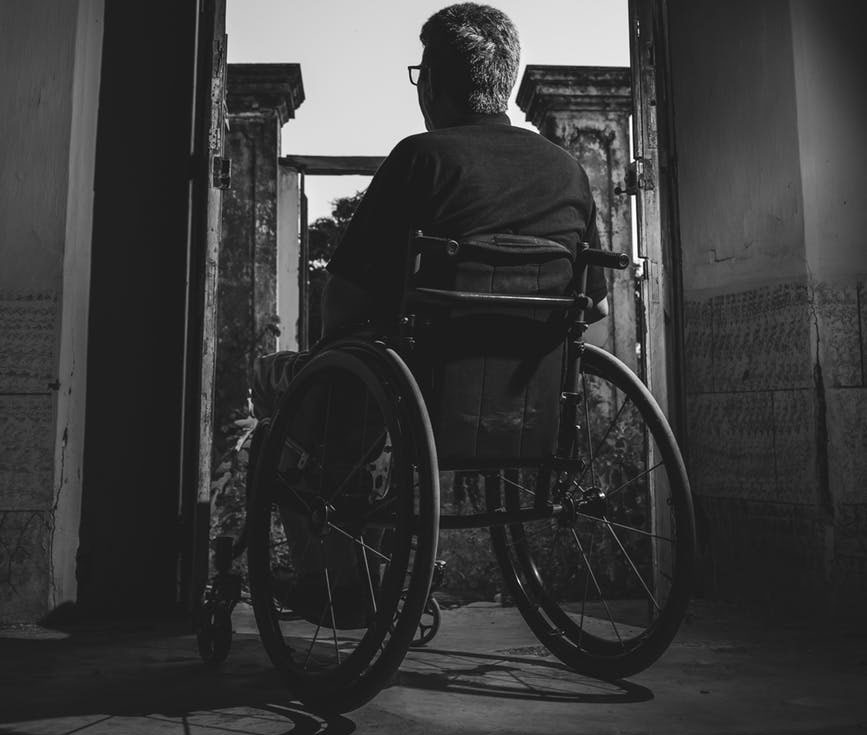“I don’t have a dis-ability, I have a different-ability.”
–Robert M. Hensel
International Day of People with Disabilities is marked annually on the 3rd of December by the United Nations since the year 1972. The aim was to propagate and promote the rights and welfare of persons with disabilities in all spheres of his/her life and to increase awareness in every aspect of their cultural, political and economic life.
International Day of People with Disabilities stands on the belief that a person is not inherently disabled and that disability is not an identity of a person. We say that people have health impairments; like some people need wheelchairs for mobility, some need assistive care; similarly, some people need corrective glasses to see clearly or medications to manage pain or disease. Everyone suffers from some kind of health impairment in their lives, the difference being that for most their health impairments don’t cause a hindrance in their day to day functioning or stop them from participating in the community.
It is important to mark this day and create an awareness to identify the social and environmental barriers that exist in society and to help people with disabilities to overcome them. It is very difficult to remove health impairments but it is important to eliminate disablement.
The subject of disability in India remains about the able-bodied. As per the country’s last recorded statistics in 2016, given by the Ministry of Statistics and Program Implementation Government of India, about 2.1 percent of the Indian population has a disability; which is about 26 million people. According to the experts, there is no particular definition for disability; however, a person can face disability, physically and mentally from medical difficulty or life-changing events in their life.
Every person reacts differently and has different needs even when suffering from the same condition. Classifications on what institutes disability, constructed by organizations accountable for acquiring the rights of persons with a disability, like the Government, are the only context for well-organized policy execution of legal directives. An understanding of this gradation has largely been absent in the dynamic presentation of the policy till now.
According to the Rights of Persons with Disabilities Act, 2016,” Person with a disability means a person with a long term mental, physical or sensory impairment which in interaction with obstacles encumbers his full and active contribution in society equally with others. World Health organization-defined disability as “Disability is an umbrella term, covering impairments, activity limitations, and participation restrictions. Impairment is a problem in body function or structure; an activity limitation is a difficulty encountered by an individual in executing a task or action; while a participation restriction is a problem experienced by an individual in involvement in life situations. ‘‘Disability is thus not just a health problem. It is a complex phenomenon, reflecting the interaction between features of a person’s body and features of the society in which he or she lives. Overcoming the difficulties faced by people with disabilities requires interventions to remove environmental and social barriers.”
CONSTITUTIONAL BODIES
Rehabilitation Council of India the Rehabilitation Council of India (RCI): Established under the Rehabilitation Council of India Act, 1992 promotes research in rehabilitation and special education, controls and monitors the training of professionals and personnel and maintain the Central Rehabilitation Register (CRR).
Chief Commission for persons with Disability: The persons with disability (with Equal Opportunity, Protection of Rights and Full Participation) Act, 1995 authorizes the Chief Commission of Persons with Disabilities (CCPD) with authorities of a civil court to look into grievances concerning to repudiation of rights of persons with disabilities and non-execution of regulations, rules etc. made for the safety and well-being for rights of persons with disabilities.
National Trust for the Welfare of Persons with Autism, Cerebral Palsy, Mental Retardation, and Multiple Disability National Trust: Established in the year 2000 under the National Trust for the Welfare of Persons with Autism, Cerebral Palsy, Mental Retardation, and Multiple Disability Act, 1999. It is a network of charitable organizations, an association of persons with disabilities and the association of their parents. The Programs range from early intervention for children up to six years of age and provides residential centers for adults.
Central Public Sector Enterprises (CPSE) (a) National Handicapped Finance and Development Corporation (NHFDC): Established in the year 1997 with a view to encourage financial expansion activities and self-employment projects for the benefit of persons with disabilities, offering to the persons with disabilities for starting a venture or for pursuing professional or technical education
The UN resolution on the Persons with disabilities and its Optional Protocol was adopted on 13 December 2006 at the United Nations Headquarters in New York. The Convention is envisioned as a human rights tool with an obvious, social development dimension. The drive of the UN Convention on the Rights of Persons with Disabilities (UN CRPD) is to encourage, preserve and support the human rights of all persons with disabilities.
India has an increasing disability right movements and one of the more liberal policy agenda in the developing world. But a lot of efforts needs to made in execution of these policies and providing the persons with disabilities their basic right. A fresh approach and better direction is the need of the hour. Precautionary health measures need to be taken, like children being screened at an early age is a must. It is important to provide a cohesive environment for people with disabilities to overcoming stigma, basic skills for employment, creating awareness and encouraging the private organization to employ people with disabilities.
“Being disabled should not mean being disqualified from having access to every aspect of life.” – Emma Thompson





